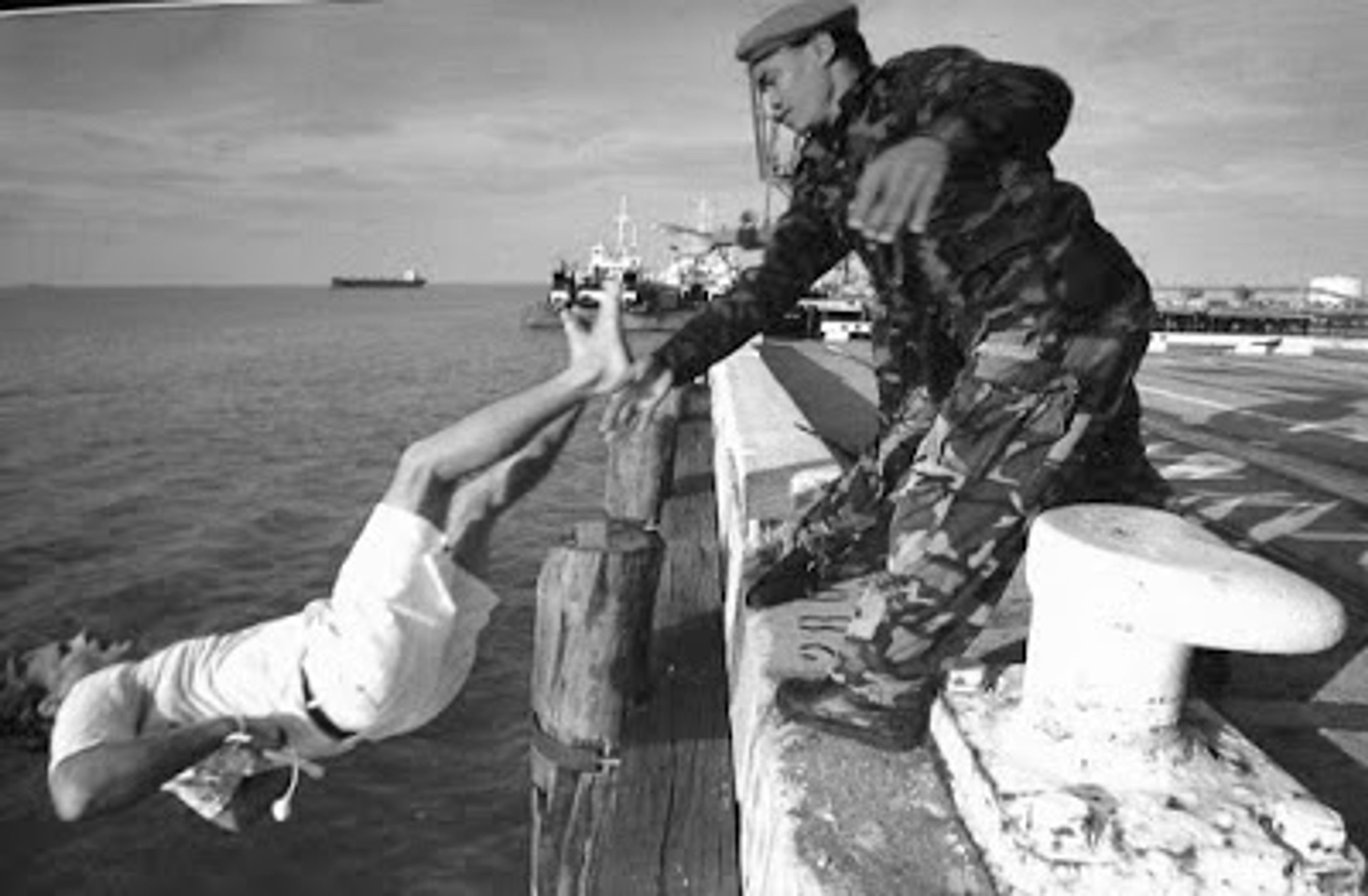
By WILSON da SILVA
Two Timorese men who say they witnessed the killing of Australian journalist Roger East in the East Timor capital of Dili 20 years ago have said they are prepared to give evidence to a Federal Government inquiry announced on Wednesday by Foreign Minister Senator Gareth Evans.
The inquiry will probe the deaths of six Australian journalists, five of whom were killed in the Timorese town of Balibo on October 16, 1975. East, a freelance journalist, was the only foreigner
in Dili on December 7, 1975, the day Indonesian forces invaded the former Portuguese colony. According to several published accounts, including reports by Amnesty International and one prepared by former Australian consul to East Timor, James Dunn, East was executed by Indonesian soldiers on the pier of Dili harbour the day after the invasion.
One of the Timorese men, who identified himself only as Mr Chong, said through an interpreter that he was among a group to be executed along with Mr East, but escaped.
The second witness, recently arrived from East Timor, asked that his name not be revealed. He said he also saw East gunned down at the pier, and that he would assist the inquiry if his identity could be protected.
The Federal Government inquiry, headed by retiring National Crime Authority chairman Tom Sherman, is to begin in February and report to the Government by May, 1996.
There has never been an official explanation of East’s death, nor an inquiry conducted. As late as 1980, Australian authorities told journalists they were still “seeking an early reply” to their requests for information into the fate of East.
A representative of the Timor ese community in Melbourne, Konneng Lay, said there were six Timorese refugees now living in Australia who witnessed the killing of East. He said a number of people still living in East Timor also witnessed the events of December 8, 1975, when scores of other people detained by Indonesian forces were executed at the pier.
The second witness to come forward said that on that day, he and a group of friends, carrying a white shirt mounted on a branch, surrendered to Indonesian soldiers patrolling the beach. They were told to sit near the pier. Two hours later, he watched soldiers arrive with a white man and scores of Timorese prisoners.
“He had a white shirt and khaki brown shorts,” the second man said of East through an interpreter. “He wore thongs and glasses. His hands were tied behind. They turned him towards the sea, and the man turned back. He talked or argued with the Indonesians. They hit , him with guns, but he kept talking. I didn’t understand [what he said].
“They used automatic weapons. It wasn’t just one soldier, it was three or four who fired. There were many killed. The pier had lots of blood,” he said.
The other witness, Mr Chong, said he was part of a work gang conscripted by Indonesian soldiers on the day of the invasion. The gang was given the task of clearing from the pier the bodies of those who did not fall into the sea after they had been shot.
He said the gang was told to tie stones or metal pipes to the bodies and drop them into the harbour. Once the soldiers had finished killing the scores of captives they brought to the pier, most of the work gang was also gunned down.
Just as the last of them were to be executed, an Indonesian officer arrived and pulled three of them out of the line-up, Mr Chong said, and ordered them to dig graves near the Hotel Timor for a number of Indonesian soldiers Killed in the invasion.
On the following day, when the work gang had finished digging the graves of 60 Indonesian soldiers, another young Indonesian officer who had been put in charge of the work gang allowed them to return home.
The other two members or the work gang have also resettled in Australia, but have declined to give evidence.
East’s sister, Glenise Kathleen Bowie, a volunteer community worker in Sydney, said she hoped the new inquiry would shed light into her brother’s death, and per haps lead to some justice 20 years later.
“I’d like to see it explained, I’d like to see them identified ... and maybe imprisoned,” Mrs Bowie said. “It’s so horrendous. Nothing can ever justify it ... they were war crimes. It was just cold-blooded murder.”
